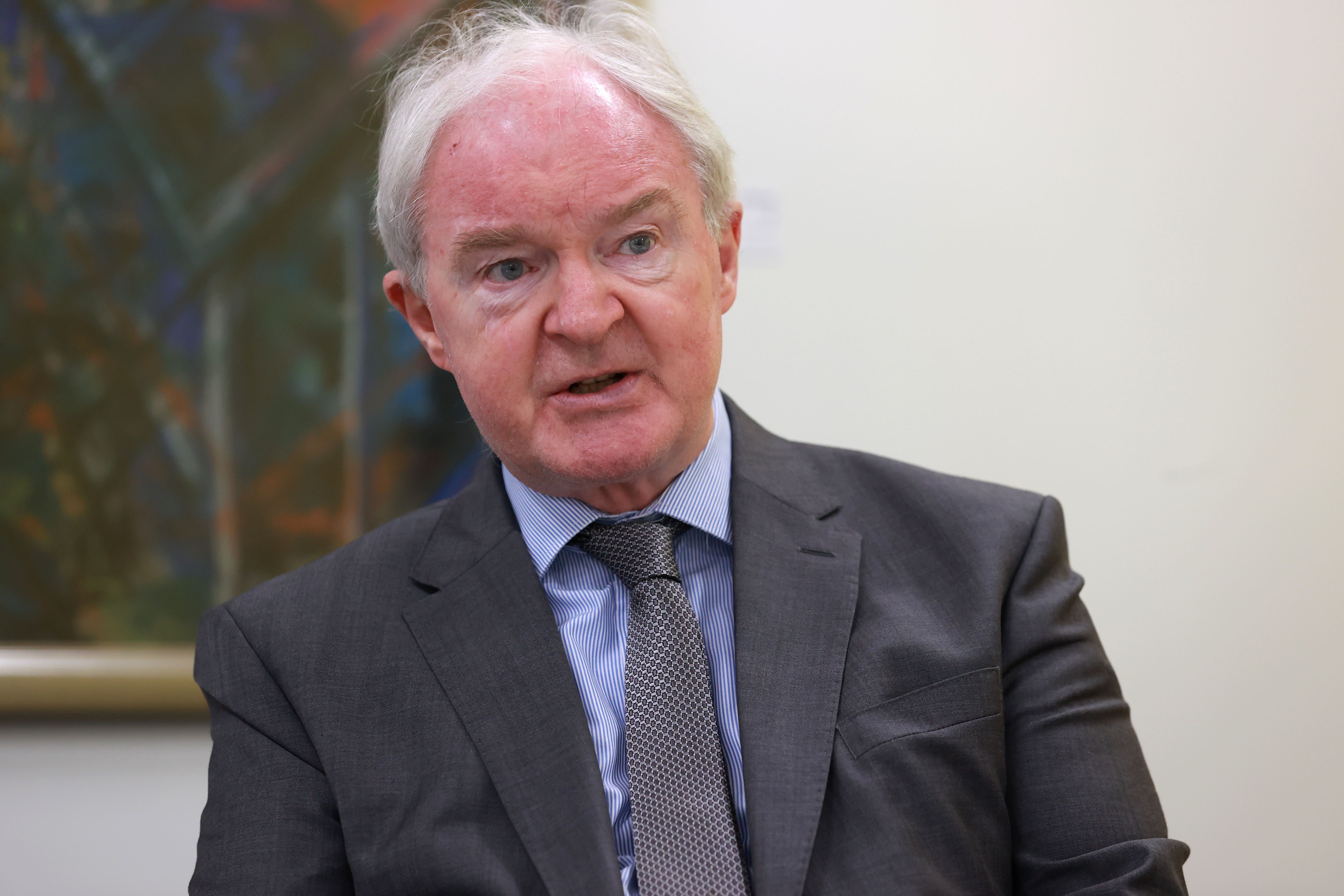Head of legacy body tells Strasbourg its work will be human-rights compliant
The new ICRIR, led by retired judge Sir Declan Morgan, will investigate hundreds of unresolved Troubles cases.

Your support helps us to tell the story
From reproductive rights to climate change to Big Tech, The Independent is on the ground when the story is developing. Whether it's investigating the financials of Elon Musk's pro-Trump PAC or producing our latest documentary, 'The A Word', which shines a light on the American women fighting for reproductive rights, we know how important it is to parse out the facts from the messaging.
At such a critical moment in US history, we need reporters on the ground. Your donation allows us to keep sending journalists to speak to both sides of the story.
The Independent is trusted by Americans across the entire political spectrum. And unlike many other quality news outlets, we choose not to lock Americans out of our reporting and analysis with paywalls. We believe quality journalism should be available to everyone, paid for by those who can afford it.
Your support makes all the difference.The head of a new information recovery body which has taken on responsibility for hundreds of unresolved Troubles deaths has insisted that commitment to human-rights principles will be paramount in its work.
Sir Declan Morgan, chief commissioner at the Independent Commission for Reconciliation and Information Recovery (ICRIR), has visited the Council of Europe in Strasbourg to explain his work.
The new ICRIR became operational earlier this month.
It is led by retired judge Sir Declan, a former lord chief justice for Northern Ireland.
The ICRIR was created by the Government’s controversial Legacy Act which received royal assent last year despite widespread opposition from political parties, victims’ organisations in Northern Ireland and the Irish Government.
All new civil litigation and inquests into Troubles deaths which had not completed oral evidence have been stopped.
Bereaved families, victims and certain public authorities can instead request the ICRIR carry out an investigation.
However, opposition to the new commission led to a protest in Belfast on its first day of work, with relatives of bereaved Troubles’ victims claiming that it has shut down access to justice.
Sir Declan presented to a number of state delegations in Strasbourg and met with the Council of Europe’s commissioner for human rights Michael O’Flaherty and Christos Giakoumopoulos, director general of human rights and rule of law.
He also outlined details on the Enhanced Inquisitorial Proceedings (EIP) which enables the commission to complete investigations into Troubles deaths previously subject to advanced stage inquests.
Our ongoing dialogue with Strasbourg and the UN is important to demonstrate our commitment to human rights and to obtain the trust of the victims and families who experienced such trauma during the Troubles/conflict
Sir Declan said: “Our commitment to human rights is paramount and is about so much more than just lip service, but through presenting our proposals for scrutiny, obtaining feedback and listening to it, we can improve our approach to delivering answers for all those who request that we conduct an investigation.
“Our ongoing dialogue with Strasbourg and the UN is important to demonstrate our commitment to human rights and to obtain the trust of the victims and families who experienced such trauma during the Troubles/conflict.”
Mr Giakoumopoulos said: “From several meetings with the ICRIR, it is clear that intensive efforts are being made to ensure the commission’s work is articles two and three compliant.”
In February, the High Court in Belfast ruled that one of the central parts of the Government’s Legacy Act, the provision for conditional immunity from prosecution for Troubles offences, was unlawful and struck it out.
The Government is appealing against that finding.
However, the court also ruled the ICRIR is able to carry out human rights-compliant investigations and is independent.